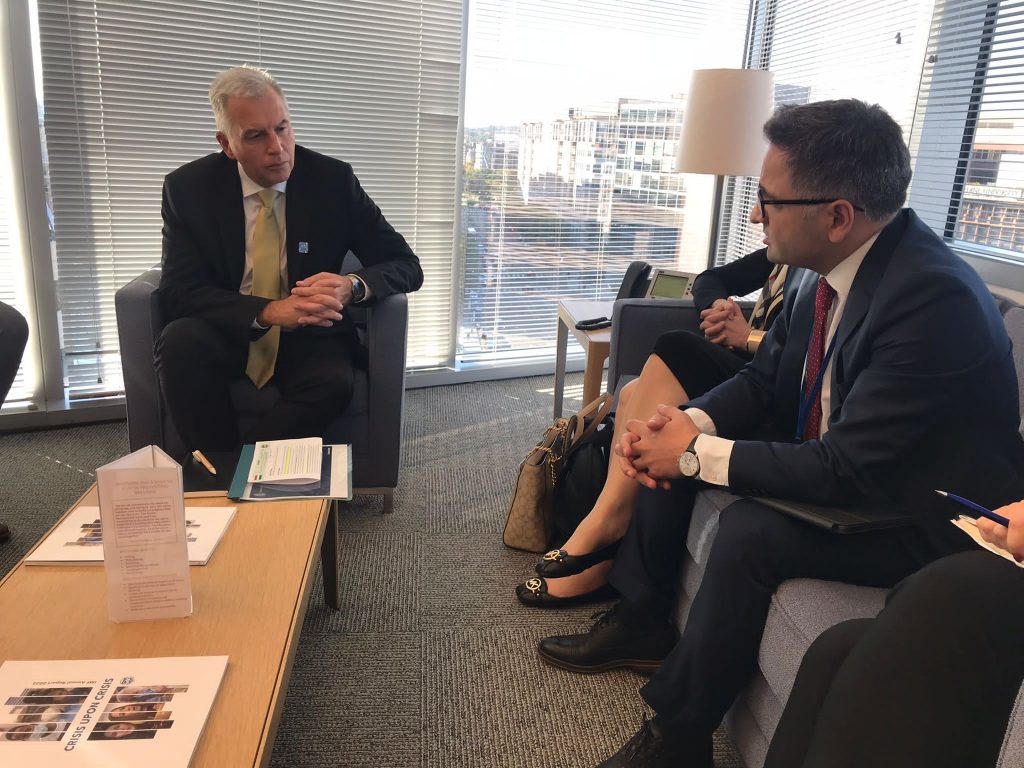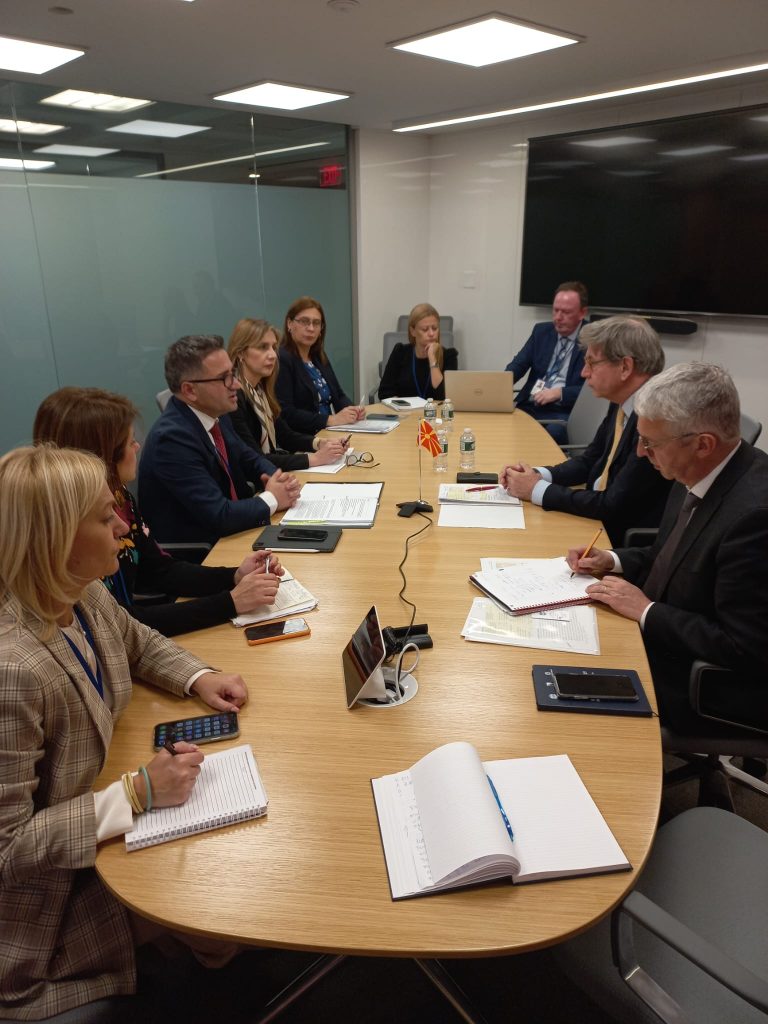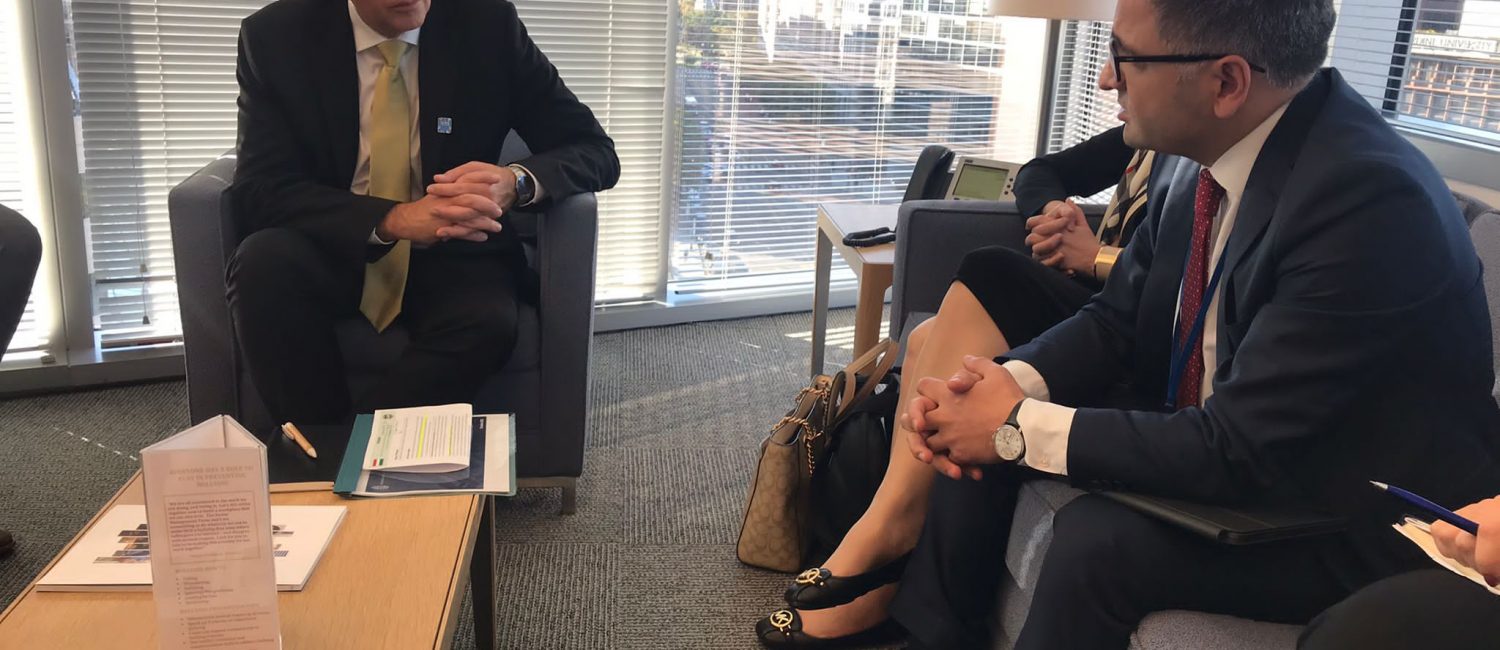15th October 2022, Washington – Public finance management reforms and their implementation by Ministry of Finance were the topics discussed between Minister of Finance, Fatmir Besimi, Director of the European Department at the International Monetary Fund, Alfred Kammer, IMF Executive Director, Paul Hilbers and IMF Resident Representative, Bergljot Bjørnson Barkbu, during the Annual IMF and WB Meetings.

Minister thereby stressed that although the focused placed by the Government is on coping with the energy crisis and exiting therefrom, with as less consequences as possible, continuous activities relating to the reform agenda are being also undertaken, which will get us closer to the European Standards, thus providing for accelerated growth as well.
“We are committed to our set reform agenda, implying improvement and greater transparency in the public finance management. New Organic Budget Law is a significant step thereto, meaning a new concept as regards the performance-based budgeting and assessment of the success thereof, thus providing for increased efficiency and effectiveness of the public expenditures. Law provides for setting new fiscal rules and fiscal principles, as well as establishing a Fiscal Council, which will ensure independent and professional analyses and opinions about the macroeconomic and fiscal assumptions, also incorporating medium-term budgeting and a 5-year Fiscal Strategy. All this will also entail greater both transparency and control over the spending of citizens’ money collected in the Budget”, Minister Besimi said.

He went on that the reforms do not only pertain to the Budget expenditures but they also cover the revenues, for which tax reform concept was prepared, being based upon the adopted Tax Reform Strategy. Broad public debate about the tax reform was launched, whereby the final version will also incorporate most of the points presented during the public debates.
What was also discussed during the meetings were the measures undertaken so as to cushion the price shocks, reduce the informal economy, as well as carry out fiscal consolidation, promote the fiscal decentralization, and accelerate both the green transition and the digitalization. At the same time, it was concluded that the coordination between monetary and fiscal policy is carried out smoothly, as regards strengthening financial stability and preserving growth. It was also pointed out that the reform implementation is accompanied by high degree of fiscal transparency and accountability, as so-far supported by the IMF, which support will continue in future as well.
















